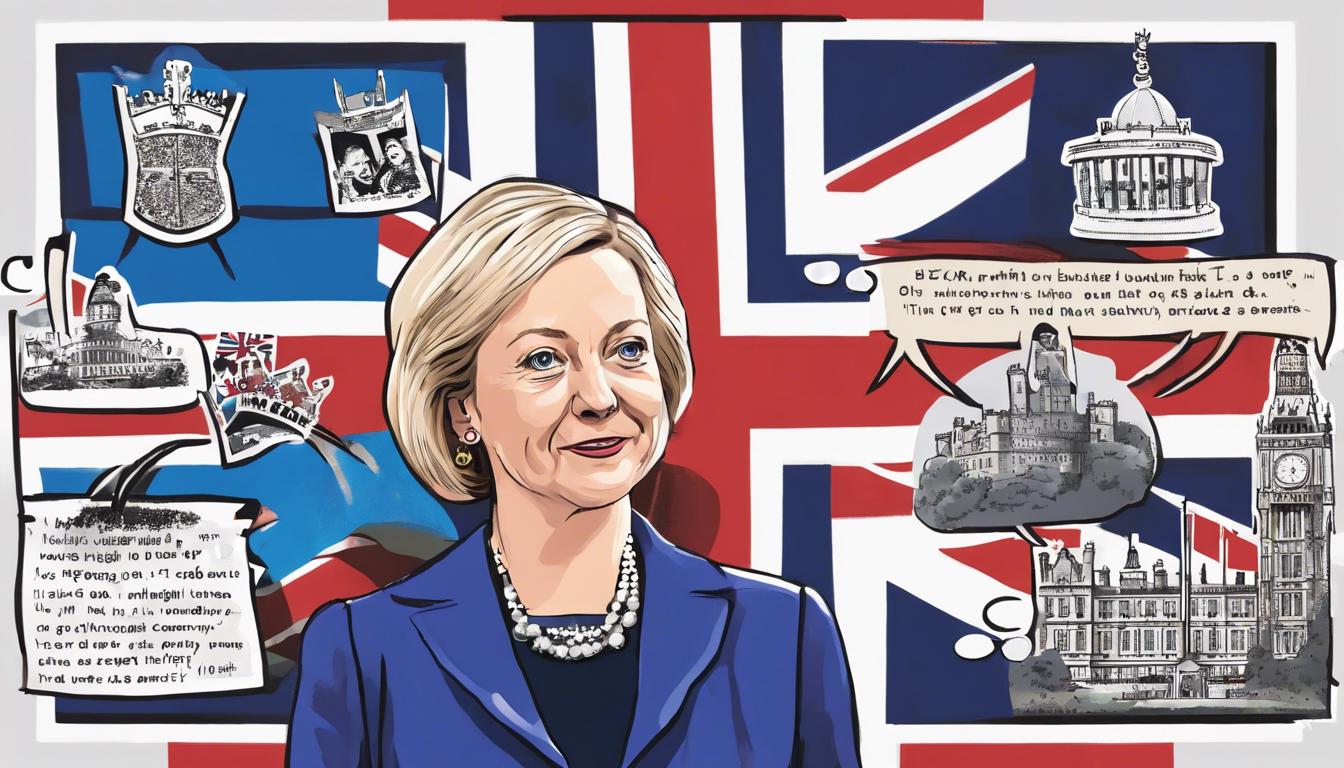Former Prime Minister Liz Truss discusses her political career, aspirations, and the unexpected passing of Queen Elizabeth II in a revealing series of interviews and memoir revelations.
Former Prime Minister Liz Truss, in different public statements, has shed light on various aspects of her political career and aspirations. Truss, reflecting on her time in office, discussed her last interaction with Queen Elizabeth II at Balmoral on September 6, 2022, just days before the Queen’s death on September 8. She recollected the Queen’s parting words, “I’ll see you next week,” highlighting the unexpected nature of Her Majesty’s passing. These were shared during a poignant moment as she recounted how Queen Elizabeth II offered leadership advice during a time of political and economic uncertainty.
In a separate account, Truss has explored her political ambition and reflections on the leadership changes within the Conservative Party, revealing her views in an interview with the Daily Express. Here, she expressed her desire to re-enter the political landscape, critiquing the decision to remove Boris Johnson as the Prime Minister and highlighting it as a misjudgment that has had lingering effects on the country. Truss emphasized the need for strong leadership to counteract challenges from leftist ideologies and big-state governance, aligning her views with a broad critique of what she perceives as barriers to economic growth and national progress.
Additionally, Truss discussed her recently published memoir, “Ten Years to Save the West,” where she elaborates on her vision for addressing pressing issues facing Western nations, including the rise of China and the ideological battles within key institutions. Through her book and interviews, she articulated a hope for renewed leadership in the White House that aligns with her views on international relations and policy-making, expressing support for Donald Trump’s potential candidacy in the United States.
Liz Truss’s continued engagement with public discourse underscores her ongoing commitment to influencing UK’s political scene, advocating for a return to leadership roles to implement her economic and political philosophies. Her perspectives, as revealed through her public communications, continue to spark discussion on leadership, governance, and international political dynamics.













